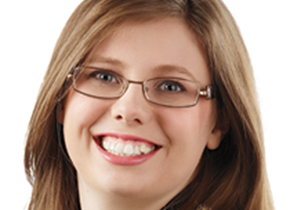Joseph Fruscione (PhD, English) contributed to the Transition Q & A series in December 2013. You can read his interview here. He was then teaching first-year writing in George Washington’s University writing program and beginning a post-academic career as freelance editor, writer, and tutor.
Since leaving academia in May 2014, I’ve done a lot of freelance editing projects, most of which have come through networking and word of mouth. Among other projects, I’ve copy edited manuscripts of two novels, an academic essay collection and several theses and dissertations. I’ve also done post-ac consulting work for The Professor Is In, writing a number of pieces on freelance editing and working with a few clients on their résumés and cover letters. As both freelance editor and post-ac consultant, I regularly drawn on my academic experience as a teacher and researcher.
Continuing my higher-ed activism and outreach, I cofounded PrecariCorps, a nonprofit designed to support adjuncts financially and professionally. As Communications Director for PrecariCorps, I handle press releases, online presence and media outreach. Later this year, PrecariCorps will run a series of webinars to help adjunct faculty navigate higher ed, as well as publish an essay collection on life inside and outside academia.
I’m as active on Twitter as ever: find me @ProfessorEx74 to join the #Postac community and discuss transition or freelance options. Always be connecting.
—
Carolyn Harris (PhD, history) contributed to the Transition Q & A series in June 2014. You can read her interview here. She was then an instructor at the University of Toronto, School of Continuing Studies, a freelance history writer and royal commentator.
My first book Magna Carta and Its Gifts to Canada was published by Dundurn Press May 2015. The book complements the Magna Carta Canada exhibition that is touring Canada in 2015 in honour of the 800th anniversary of Magna Carta. My second book, Queenship and Revolution in Early Modern Europe: Henrietta Maria and Marie Antoinette will be published in November 2015 by Palgrave MacMillan as part of the Queenship and Power Series.
I have developed new courses for University of Toronto School of Continuing Studies. In 2015-2016, I will be teaching courses on “Magna Carta and the Making of the Modern World,” “Artists and their Royal Patrons,” and “Imperial Spain.”
In August 2014, I gave European history lectures for a month aboard the Azamara Journey cruise ship. The ship sailed from Copenhagen, Denmark, crossed the North Sea, then sailed to ports in Scotland, Wales, Ireland and England then along the Atlantic coast of France, Spain and Portugal. In 2015, I am traveling across Canada giving lectures on Magna Carta, speaking in Ottawa/Gatineau, Winnipeg, Moncton, Regina, Saskatoon and Edmonton.
—
Andrew Miller (PhD, history) originally wrote about his transition in August 2014. He was then the manager of a public-transit policy office for the Province of Ontario.
Shortly after my Q&A was published, I took leave from the Province to join the City of Mississauga as a Strategic Leader. I’m responsible for the development of a master plan for rapid transit and transit-supportive land use for one of the city’s key corridors. This is a multi-million dollar project and requires me to exercise a variety of different skills. Some of these skills I honed in my PhD work, like my ability to do fast, solid research; pitch the project persuasively to a variety of stakeholders, including senior decision-makers both here at the City and elsewhere; and, above all, manage project details very carefully, in order to land the plan on time and on budget. Other skills are ones that my PhD was less helpful for, most notably managing teams of professionals in pursuit of a common goal. My central advice to PhDs seeking work outside the academy hasn’t changed – what matters most are your skills. A doctoral degree will allow you to practice many valuable skills, but leadership and group skills aren’t typically among them, which is why it’s so important to seek opportunities to flex those muscles wherever you can, whether in extracurricular or volunteer capacities. Feel free to connect with me on LinkedIn.



